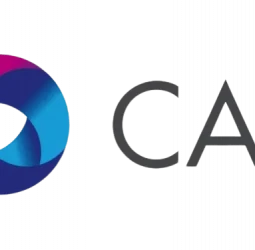Fitch Ratings - Fitch Ratings has upgraded Bank of Ceylon's (BOC) Long-Term Foreign- and Local-Currency Issuer Default Ratings (IDRs) to 'CCC+' from 'CCC-'. The ratings do not have an Outlook because of the high volatility at this rating level, in line with Fitch's rating definitions.
Fitch has also upgraded BOC's Viability Rating (VR) to 'ccc+' from 'ccc-', affirmed its Short-Term IDR at 'C' and its Government Support Rating (GSR) at 'ns'.
BOC's National Long-Term Rating of 'A(lka)'/Stable was not considered in this review.
The rating actions follow the upgrade of Sri Lanka's Long-Term Foreign-Currency IDR to 'CCC+', from 'RD', and Local-Currency IDR to 'CCC+', from 'CCC-', on 20 December 2024. For details, please see Fitch Upgrades Sri Lanka to 'CCC+'.
Key Rating Drivers
Improved Sovereign Credit Profile: The upgrade of BOC's IDRs is driven by the upgrade of its VR, which stems from the improvement in Sri Lanka's credit profile following the completion of a debt restructuring. We believe this has reduced sovereign-related stress on Sri Lankan banks' operating environment (OE) as well as on BOC's financial and non-financial factors, supporting the improvement in BOC's overall credit profile.
BOC's ratings are closely linked to the sovereign's credit profile given its large exposure to the domestic economy, government securities and lending to the broader public sector.
Sovereign Drives OE Improvement: The upward revision in the Sri Lankan banks' OE score to 'ccc+', from 'ccc-', primarily stems from the sovereign's enhanced credit profile after the successful debt restructuring. Economic reforms implemented since the start of the crisis in 2022 have stabilised the economy, reducing macro-financial stability risks to the banking sector. We expect the improvement to be sustained, supported by our estimated economic growth of 4.1% in 2024 and an average of 3.6% over 2025-2026.
Enhanced Business Profile: Fitch has revised BOC's business profile score to 'b-' from 'ccc-' following the revision in the OE score and the bank's continued strong market position as the largest bank in Sri Lanka, accounting for 22% of sector assets. We expect BOC's ability to generate and defend business volume and earnings to be bolstered by the OE improvement as well as the bank's strong local franchise.
Sovereign Risks Weigh on Risk Profile: The easing of the sovereign's default risk and the improved OE underpin the revision in BOC's risk profile score to 'ccc+' from 'ccc-'. BOC's risk profile continues to reflect its large exposure to the sovereign, which we estimate at nearly 60% of assets, comprising loan and non-loan exposures. We expect BOC's sovereign exposure to moderate in the medium term as private-sector lending opportunities expand, but the exposure will remain a key driver of its risk profile.
Better Asset-Quality Prospects: The revision in BOC's asset-quality score to 'ccc+' from 'ccc-' reflects our view that asset quality is broadly aligned with the sovereign's creditworthiness due to the bank's large exposure. Loan book contraction has exacerbated BOC's impaired (stage 3) loan ratio, which deteriorated to 13.6% by end-3Q24 (end-2023: 12.6%) but we expect a meaningful improvement as borrower repayment capacity is enhanced further.
Reduced Risks to Profitability: Reduced risks to BOC's structural profitability following the successful completion of the sovereign's external debt restructuring support Fitch's revision of the bank's earnings and profitability score to 'b-' from 'ccc-'. We expect profitability to be highly correlated with economic and interest rate cycles since sovereign-related issues are largely resolved. We believe the conclusion of the government's efforts to restructure a state-owned entity's debt will provide a boost to BOC's operating profit/risk-weighted asset ratio from the 3.7% at end-9M24.
Solvency Risks Abate: We believe the reduced risk of a sovereign default and the stabilising economy alleviate solvency risks for BOC. This underpins the upward revision in the bank's capitalisation and leverage score to 'ccc+' from 'ccc-'. The score reflects the vulnerability of BOC's capital to sovereign risks via sovereign bonds and rupee-denominated government securities in addition to capital-impairment risks on its loan book, including to state and state-owned entities.
Improved External Funding Access: Fitch has revised BOC's funding and liquidity score to 'ccc+' from 'ccc-' to reflect the anticipated improvement in the bank's funding and liquidity profile, particularly on foreign currency, due to the sovereign's reduced default risks. We expect the restoration of the sovereign's creditworthiness to provide BOC with access to foreign-currency wholesale funding, which was once a key source of funding for the bank.
State Support Still Unlikely: The GSR of 'No Support' reflects our assessment that there is no reasonable assumption of government support for the bank. We believe the sovereign's ability to provide extraordinary support, particularly in foreign currency, remains constrained, despite the higher sovereign rating, given the challenges to the state's financial flexibility and the size of the banking sector relative to the economy. This is despite the sovereign's strong propensity to extend support to the bank due to its high systemic importance and full state ownership.
Rating Sensitivities
Factors that Could, Individually or Collectively, Lead to Negative Rating Action/Downgrade
A downgrade of BOC's Long-Term Foreign- and/or Local-Currency IDRs and VR is most likely to stem from a deterioration in Sri Lanka's sovereign rating, which would constrain BOC's standalone credit profile, including the OE. Increased likelihood that the bank would default on, or seek a restructuring of, its senior foreign- and/or local-currency obligations to non-government creditors could also lead to a downgrade of BOC's Long-Term Foreign- and/or Local-Currency IDRs.
Factors that Could, Individually or Collectively, Lead to Positive Rating Action/Upgrade
An upgrade of BOC's Long-Term Foreign- and Local-Currency IDRs and VR would most likely result from an improvement in the sovereign's credit profile and the OE assessment. A sustained improvement in the sovereign's financial flexibility may lead to a reconsideration of state support, leading to an upgrade of the bank's GSR.
VR ADJUSTMENTS
The operating environment score of 'ccc+' is below the 'b' category implied score due to the following adjustment reason: sovereign rating (negative).
BOC has a 1.78% equity stake in Fitch Ratings Lanka Ltd. No shareholder other than Fitch, Inc. is involved in the day- to-day rating operations of, or credit reviews undertaken by, Fitch Ratings Lanka.
REFERENCES FOR SUBSTANTIALLY MATERIAL SOURCE CITED AS KEY DRIVER OF RATING
The principal sources of information used in the analysis are described in the Applicable Criteria.
ESG Considerations
BOC has an ESG Relevance Score of '4' for Governance Structure due to ownership concentration, with a 100% state shareholding and several related-party transactions with the state and state-owned entities, which has a negative impact on the credit profile, and is relevant to the ratings in conjunction with other factors.
The highest level of ESG credit relevance is a score of '3', unless otherwise disclosed in this section. A score of '3' means ESG issues are credit-neutral or have only a minimal credit impact on the entity, either due to their nature or the way in which they are being managed by the entity. Fitch's ESG Relevance Scores are not inputs in the rating process; they are an observation on the relevance and materiality of ESG factors in the rating decision. For more information on Fitch's ESG Relevance Scores, visit https://www.



 A.R.B.J Rajapaksha
A.R.B.J Rajapaksha



